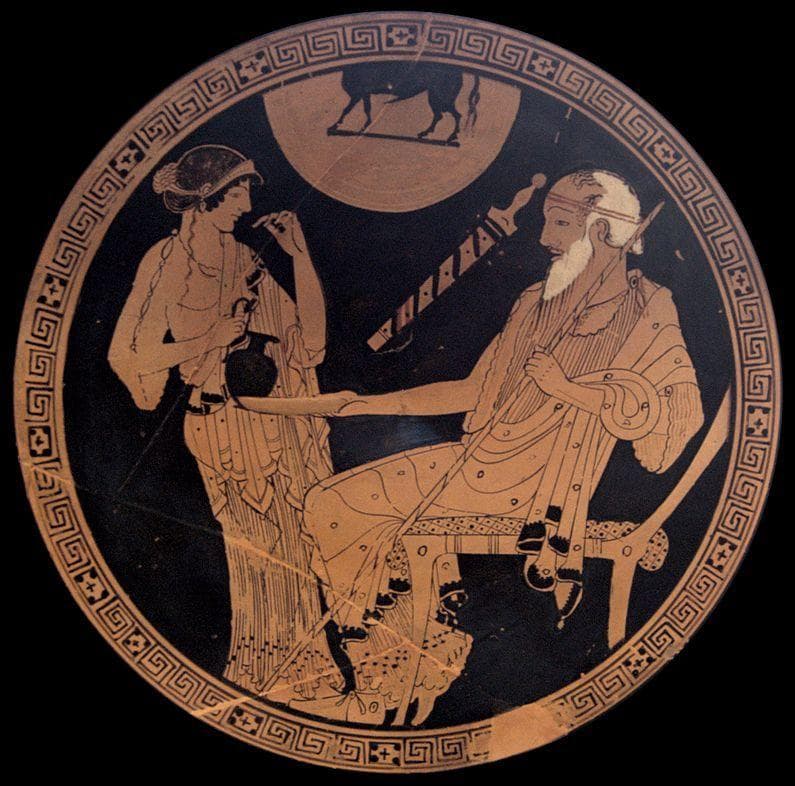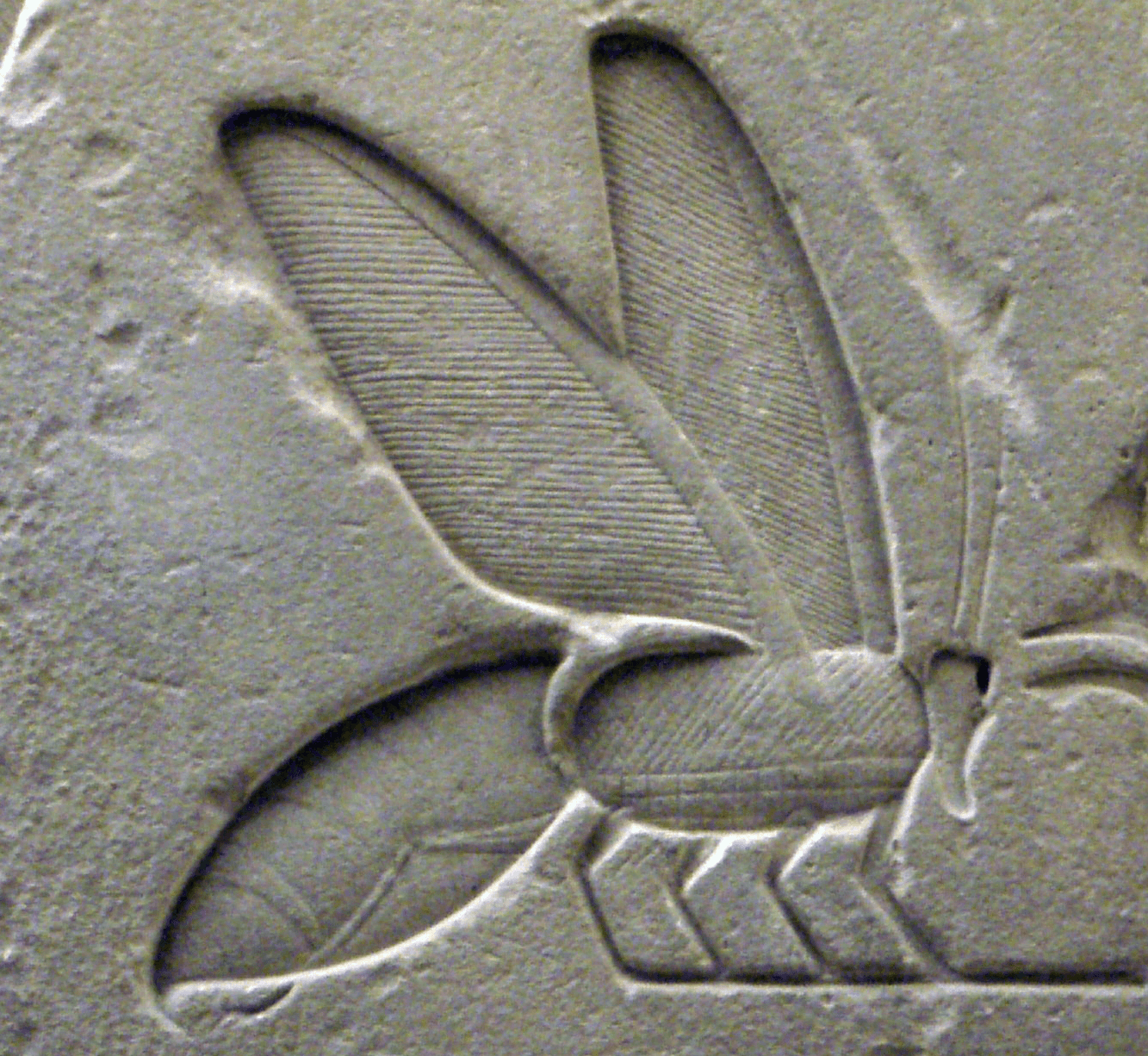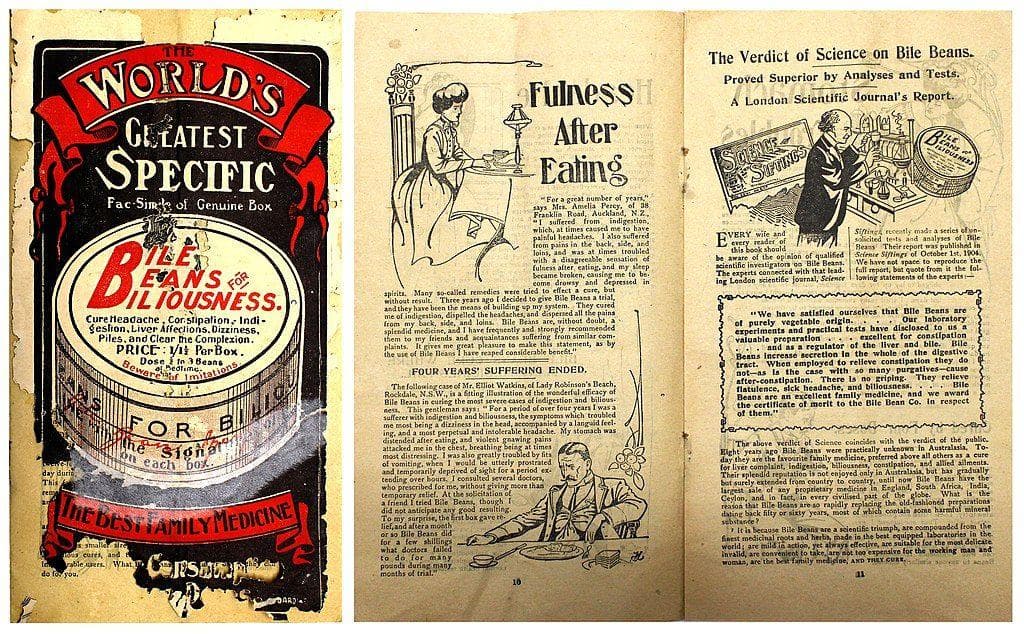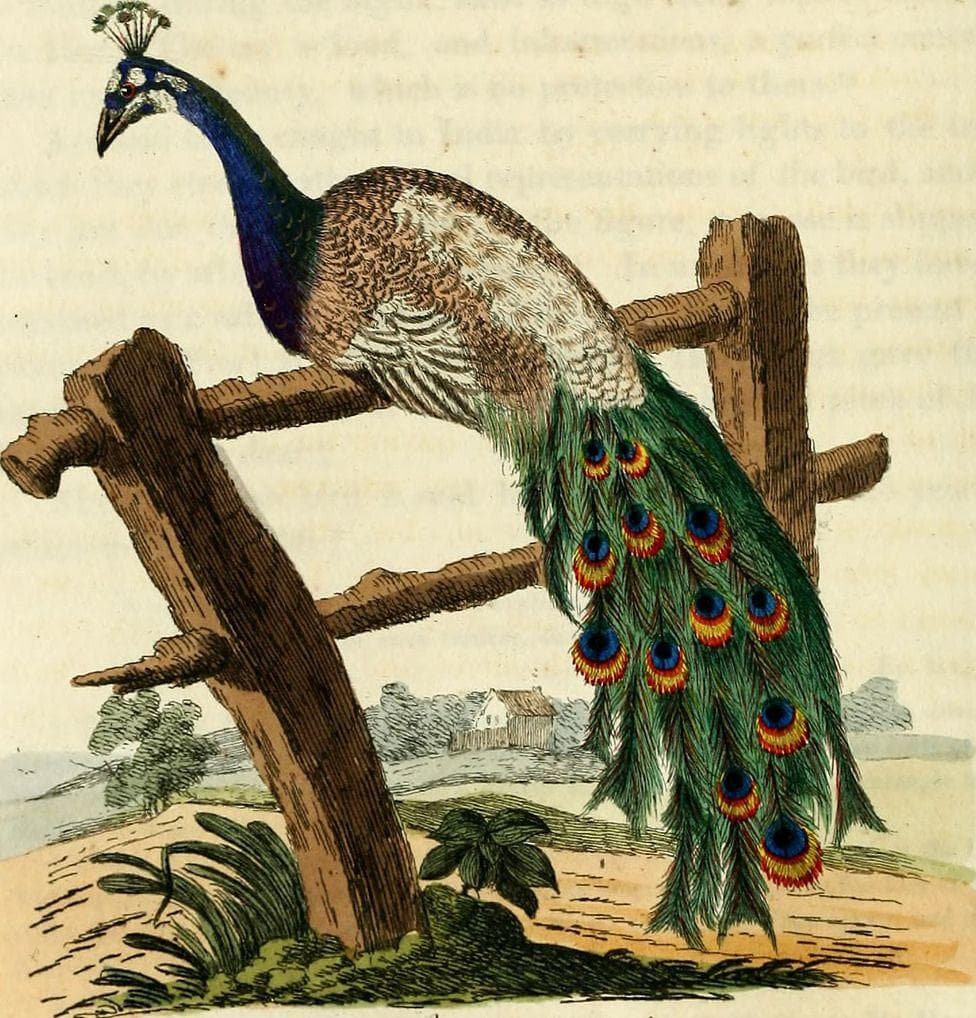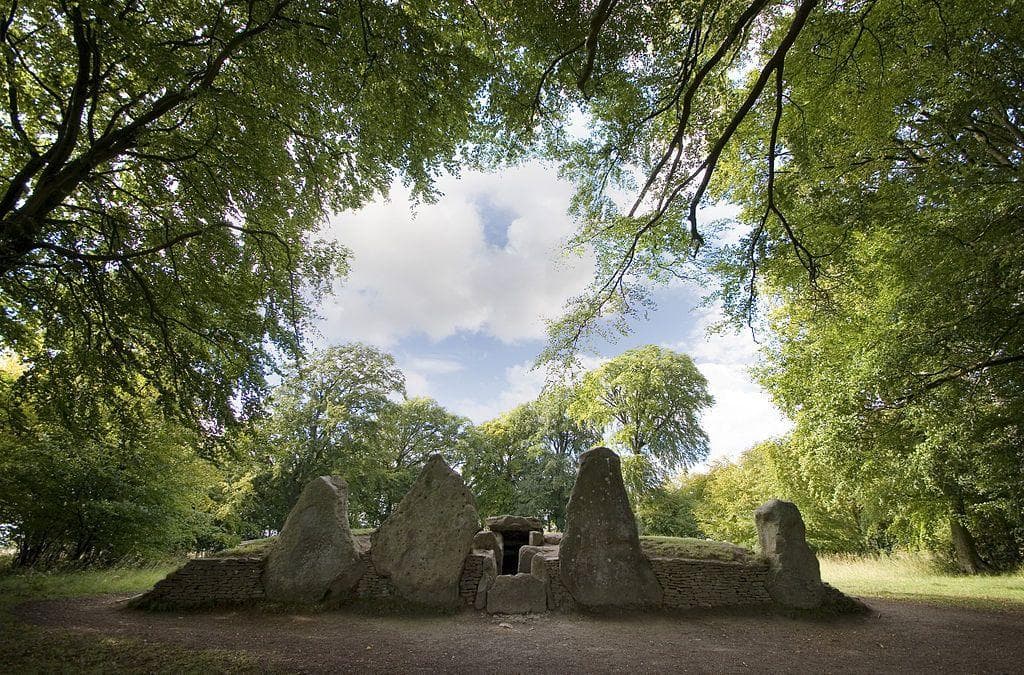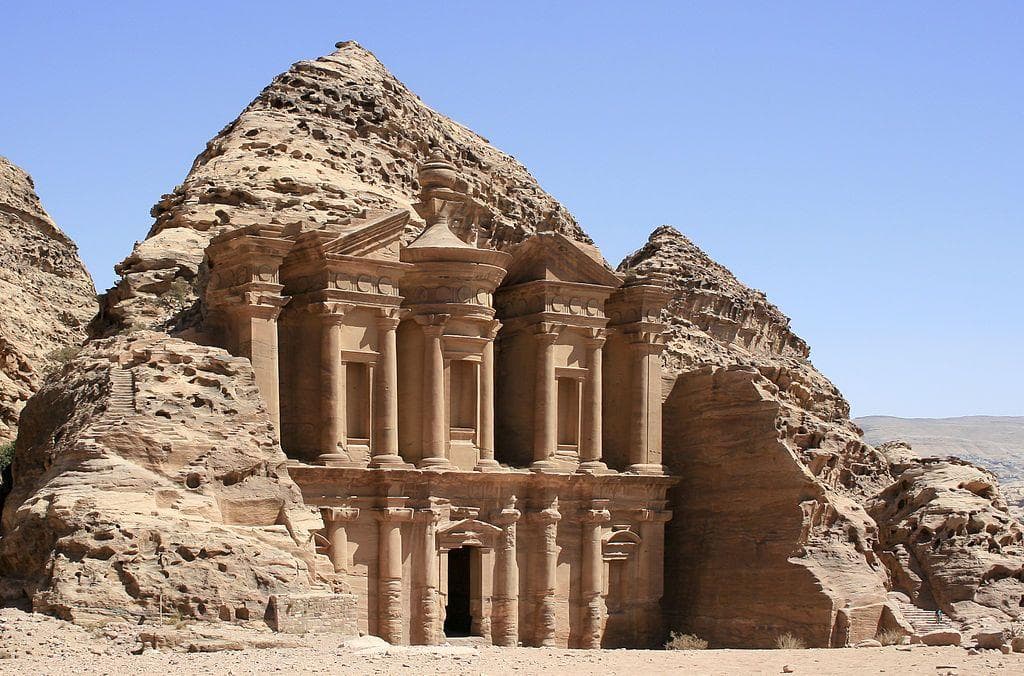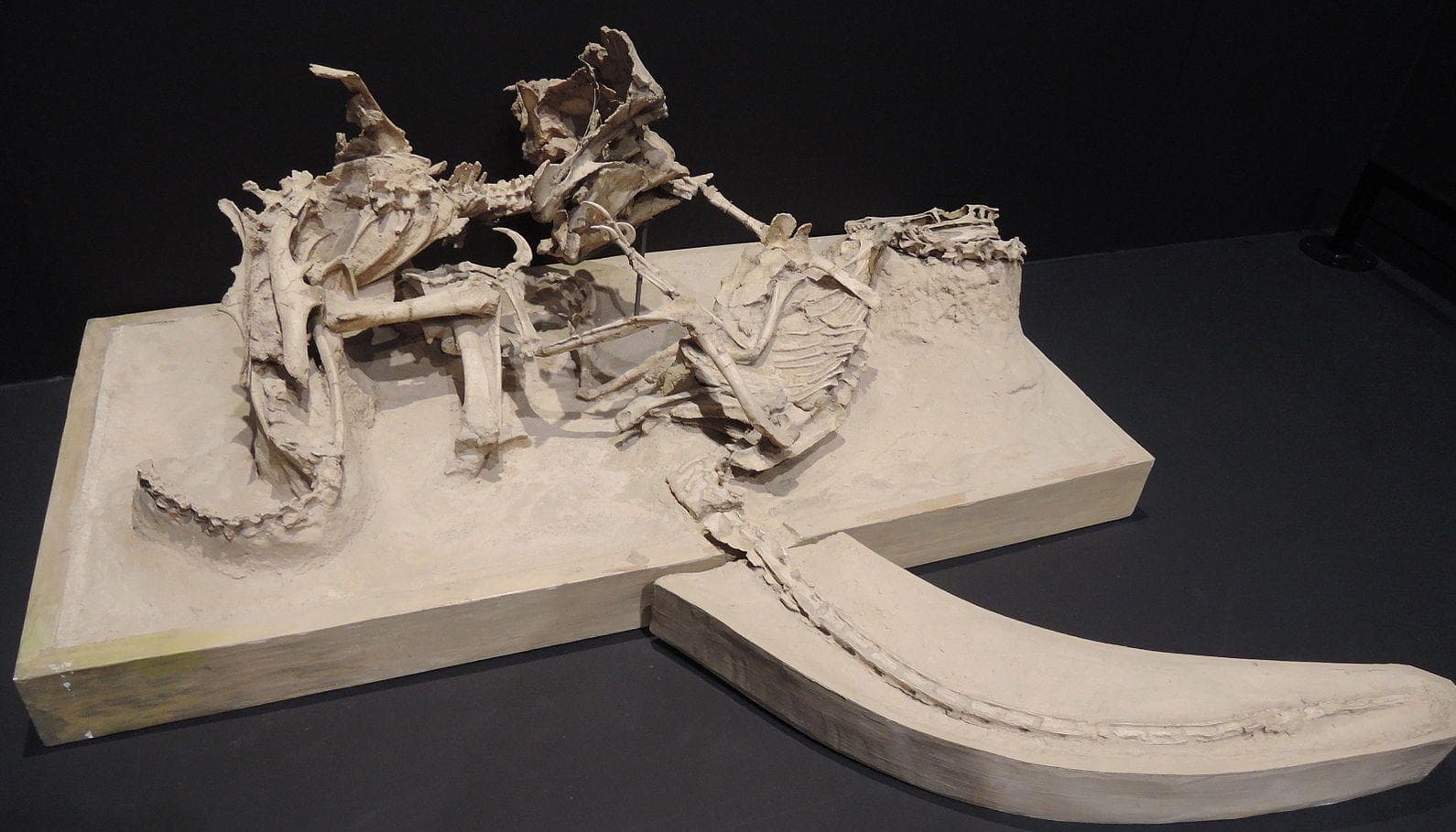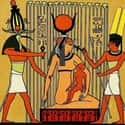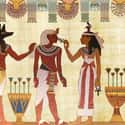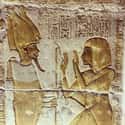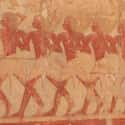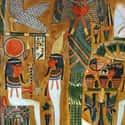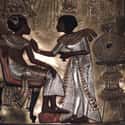-
(#6) Cosmetics Were Applied Daily For Health And Aesthetic Purposes
Since they provided other benefits besides beauty, cosmetics were used by both men and women in ancient Egypt. After smoothing their skin with oils and face masks of honey or aloe, people applied eyeshadow, mascara, and eyeliner. Eyeliner was popular not only as a beauty statement; the kohl people used to line their eyes also protected their eyes from the sun's glare and repelled flies.
To make these cosmetics, people ground natural elements such as malachite and galena into a powder, mixed it with fat to create a cream, and then stored the cosmetics in pots. While the wealthy owned decorated pots made of fine materials, the lower classes used simple, cheaper materials to make containers for their cosmetics.
-
(#12) The Wealthy Employed People To Give Them Manicures
The wealthiest Egyptians employed others to keep their fingernails looking healthy and clean. The upper class and royalty hired manicurists, who used files and small knives to trim and clean their toenails and fingernails. Manicurists held a special place in society and made sure to prominently label their tombs with their job title after they passed. People also used a primitive form of nail polish, using henna to color their nails orange and yellow.
While they couldn't afford to hire others to take care of their hands and feet, the lower classes didn't necessarily have to live with dirty, ragged nails. Historians believe members of the lower classes probably took care of their fingernails and toenails in a similar fashion using less expensive tools. Regardless of class, taking care of one's feet was important since most people went barefoot and needed to use creams and ointments to keep them from cracking or attracting insects.
-
(#11) Toothbrushes, Toothpaste, And Dental Work Were Used On Teeth
In order to clean their teeth, ancient Egyptians ground natural materials like salt, flowers, and mint into a powder. As they brushed this over their teeth using their fingers, it mixed with saliva to form a paste. Egyptians eventually created a toothbrush using a stick bound with thin strips of plants as bristles.
Although they didn't have to worry about substances like sugar decaying their teeth, an abundance of sand meant Egyptians often got some in their mouth, which helped wear down their teeth. Historians discovered evidence of dental practices, including fillings and keeping loose teeth in place with splints. Several mummies also had bridge work done using teeth that were not their own, but it's difficult to tell if the dental work had been completed during their life or after.
-
(#14) Food Preparation Took Place On The Floor And Used Contaminated Water
Ancient Egyptians depended on the Nile River for many things, including their bathing and drinking water. Because it often flooded, the Nile also created fertile soil for growing food along its banks. However, since many people used the fields and the Nile itself as a bathroom, disease and other contamination often came into contact with the soil and food.
In lower class households, this contamination of food also included preparing meals on the floor, such as milling grains to make bread. People prepared food in open air rooms or on the roof if their homes didn't have kitchens, and vermin often infested homes and areas where food was kept. Once they finished eating, people washed their dishes with the dirty Nile water and disposed of their garbage outdoors.
-
(#8) Only The Very Wealthy Had Indoor Bathing Facilities
The average Egyptian took a bath or shower every day; however, the methods they used to do so depended on their social class. The wealthiest Egyptians had places to bathe inside their homes. Standing on a stone slab, bathers had basins or jugs full of water carried from the Nile poured on them by their servants. Some upper-class homes had foot baths made of wood, stone, or ceramic which they used to clean their feet since many people didn't wear shoes.
Egyptians used a natural substance called natron as soap and slathered themselves with moisturizing creams after they bathed to keep their skin soft. Members of the lower classes, which included most of Egyptian society, bathed themselves in the Nile itself.
-
(#3) Mints And Chewed Herbs Kept Breath Smelling Fresh
Since fresh breath was important to the ancient Egyptians, they made sure they always had access to methods of relieving bad breath. They often chewed on herbs like parsley during the day or after meals.
Egyptians also used the equivalent of breath mints, which they either made themselves or purchased pre-made. The mints combined fragrant spices and herbs, such as cinnamon and frankincense, with cashews and pine seeds. Honey bound the ingredients together and was then heated with fire to form candies. Historians believe some of the dishes found in ancient Egyptian homes may have been candy dishes used to store these mints.
New Random Displays Display All By Ranking
About This Tool
Nowadays, humans are still obsessed with studying the extraordinary contributions made by the ancient Egyptians to the progress of human civilization. The famous historian Herodotus recounted that the ancient Egyptians ensured that their cups, utensils, and bodies were cleaned every day. Linen clothes were popular in ancient Egypt because they were easy to clean and comfortable. They believed that cleanliness is better than beauty and also knew how to use mint to refresh their breath.
According to historical records, deodorant was invented in ancient Egypt. People invented deodorant by mixing various spices, such as citrus and cinnamon. The random tool introduced 16 detailed information about hygiene in ancient Egypt.
Our data comes from Ranker, If you want to participate in the ranking of items displayed on this page, please click here.

